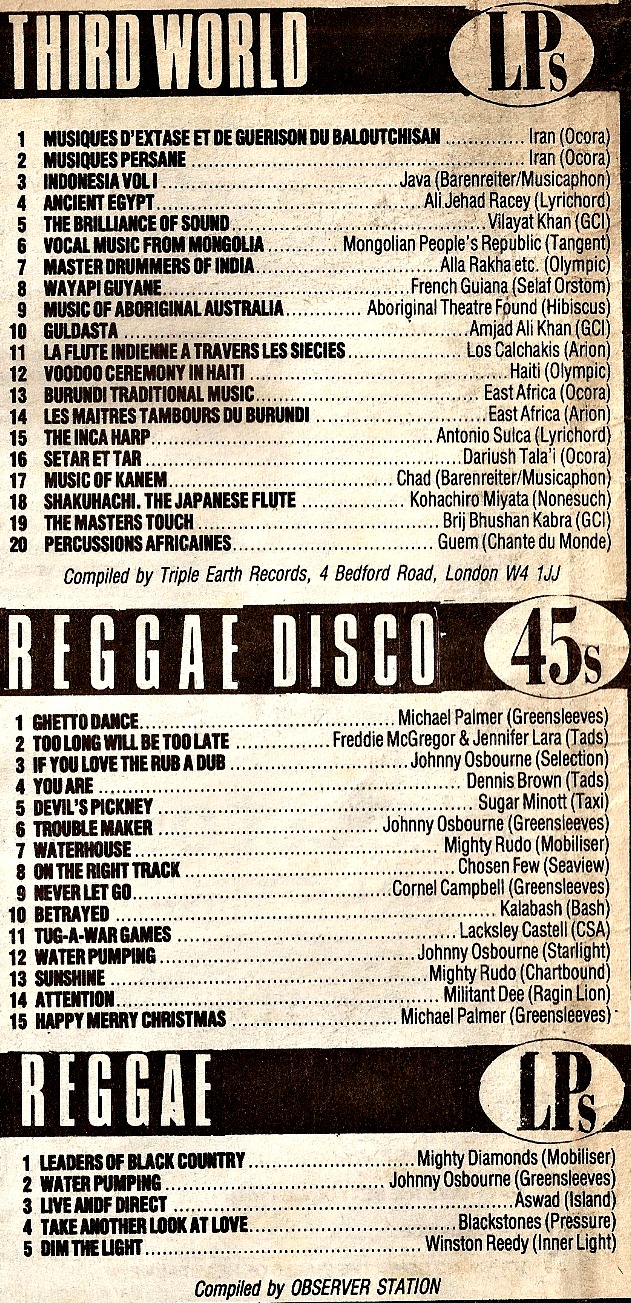What were the UK pop kids, dancers and punks listening to 30 years ago? Here's some clues in the charts from the New Musical Express 24 December 1983.
The Dance Floor charts weren't really a reflection of record sales or even necessarily of what people were dancing to in many UK high street clubs. This one was compiled by the DJ at Birmingham club 'The Garage' so it's probably more a snapshot of what people were listening to there and in similar places where the DJs played an eclectic mix of of funk, soul and more post-punk funk from the likes of A Certain Ratio and Jah Wobble. Certainly I remember going to lots of student parties in this period where James Brown was obligatory - he was still releasing great records in this period, with 'Bring it On' coming out in 1983 and his last hit 'Living in America' in 1985.
The term 'World Music' hadn't yet caught on, the category 'Third World' was used in the NME charts to cover music from Africa, the Middle East, Mongolia and seemingly anywhere outside of Europe and North America. The chart was compiled by Triple Earth Records, which went on to become a significant 'world music' label in the 1980s.
The Reggae Disco singles charts and Reggae LPs chart were compiled by 'Observer Station' with a whole lot of Johnny Osbourne - three singles and an album riding high. Michael Palmer's Ghetto Dance was number one single ('Ghetto dance, ghetto dance, Babylon give me a chance...').
The Independent charts were based on record sales and had become a big deal in a period of many iconic indie acts (Smiths, Cocteau Twins, New Order, Birthday Party), the anarcho-punk scene (Conflict, Subhumans), psychobilly (The Meteors and Cramps) and emerging goths (Death Cult, Sisters of Mercy, Alien Sex Fiend). Label wise the big ones were 4AD, Mute, Rough Trade and Factory, but Stoke-based punk label Clay Records was also important (Discharge, GBH, Abrasive Wheels etc).
The main UK charts featured some classic pop as well as lots of crap which no amount of nostalgia/retro irony can rescue from the charity shop unwanted piles where it now lingers. The dominant album was Michael Jackson's Thriller - number one in the charts a year after it was first released. Culture Club has become a global sensation that year, and Luton's Paul Young was riding high. I worked in a Luton factory that summer packing electrical instruments while listening to Radio One with his then girlfriend's mum!


















































